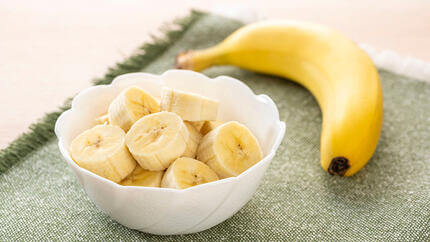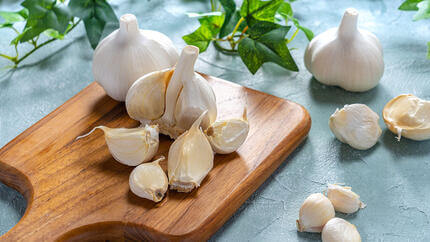
Prebiotics are a type of dietary fibre that foster the growth of beneficial bacteria in your dog's gut, thereby supporting their overall digestive health. By understanding how prebiotics for dogs function and their benefits, you can make informed decisions about incorporating them into your dog's diet. So let’s learn more about them.
What are prebiotics for dogs?
Prebiotics are non-digestible food ingredients that offer numerous health benefits for dogs by stimulating the growth and activity of beneficial gut bacteria. Unlike probiotics, which are live bacteria, prebiotics serve as a fuel source for these beneficial bacteria, ensuring they flourish.
One significant difference between prebiotics and probiotics is that prebiotics are not affected by heat or stomach acid, making them more stable and reliable. Probiotics, however, can be sensitive to these factors and may require specific storage conditions.
Natural sources of prebiotics for dogs include:
- Inulin: Found in vegetables such as chicory root, dandelion greens, and Jerusalem artichokes.
- Fructooligosaccharides (FOS): Naturally occurring sugars found in fruits and vegetables such as bananas, onions, and garlic.
- Galactooligosaccharides (GOS): Present in dairy products such as yogurt and kefir.
Incorporating prebiotics into your dog's diet can support a healthy digestive system, improve nutrient absorption, reduce the risk of digestive disorders, and strengthen the immune system.
How do prebiotics work in dogs?
Dog prebiotics play a crucial role in maintaining a healthy digestive system for dogs by nourishing beneficial gut bacteria and promoting a balanced gut microbiome.
These non-digestible fibres resist breakdown in the stomach and small intestine, reaching the large intestine where they serve as food for beneficial bacteria. By nourishing these bacteria, prebiotics help increase their numbers and diversity, fostering a healthy gut microbiome, which is essential for proper digestion and nutrient absorption.
When the gut microbiome is imbalanced, it can lead to digestive issues, such as diarrhoea or constipation. A good prebiotic for dogs can help restore and maintain a healthy balance of gut bacteria, promoting optimal digestive function.
Moreover, prebiotics enhance nutrient absorption, aiding in the digestion and absorption of essential nutrients such as proteins, carbohydrates, and vitamins. This means dogs can derive more nutritional benefits from their food, leading to improved overall health and well-being.
Benefits of prebiotics for dogs
Prebiotics offer numerous benefits for dogs, particularly in terms of digestive health, immune system support, and inflammation reduction. Here are some:
- They improve digestive health in dogs, leading to better nutrient utilisation and overall gut health.
- Boosting the immune system by strengthening the gut barrier function, preventing harmful bacteria from entering the bloodstream and causing infections.
- They have anti-inflammatory properties, which can benefit dogs with inflammatory conditions.
Prebiotics vs. probiotics for dogs
When it comes to supporting your dog's digestive health, prebiotics and probiotics are two terms you may have encountered. While both play crucial roles in promoting a healthy gut, it is important to understand their key differences and when to use each.
Key differences in function:
Dog prebiotics are non-digestible fibres that serve as food for beneficial gut bacteria (probiotics). They act as a fuel source, helping probiotics thrive and multiply. Conversely, probiotics are live microorganisms that provide a direct supply of beneficial bacteria to the gut.
When to use each:
If your dog has been on antibiotics or is experiencing digestive issues such as diarrhoea or constipation, probiotics can help restore the balance of good bacteria in their gut. Prebiotics, on the other hand, are beneficial for promoting the growth of probiotics and maintaining a healthy gut in general.
Combined benefits of synbiotics:
Synbiotics refer to the combination of prebiotics and probiotics. When used together, they can provide enhanced benefits. The prebiotics act as a food source, ensuring that the probiotics survive and flourish in the gut. This combination can support digestive health, strengthen the immune system, and improve nutrient absorption in dogs.
Do dogs need prebiotics?
Prebiotics are beneficial substances that can support the digestive health of dogs. While dogs are known for having ‘strong stomachs’, certain signs may indicate they could benefit from prebiotics.
If you notice your dog has frequent digestive issues, such as diarrhoea, constipation, or excessive gas, it might be worth considering incorporating prebiotics into their diet. These signs could indicate an imbalance of gut bacteria, and prebiotics can help restore this balance by promoting the growth of beneficial bacteria.
Veterinarians often recommend prebiotics for dogs with digestive issues. They recognise the importance of a healthy gut and understand how prebiotics can aid in maintaining optimal digestive function. Consulting with your vet can provide valuable insights into whether prebiotics are suitable for your dog's specific needs.
How to incorporate prebiotics into your dog's diet
If you're looking to support your dog's digestive health, incorporating prebiotics into their diet can be highly beneficial. Here are some ways to introduce dog prebiotics into their diet:
1. Prebiotic-rich foods: Certain foods naturally contain natural prebiotics for dogs, making it easy to incorporate them into your dog's meals. Chicory root, for example, can be a good prebiotic for dogs, as well as dandelion greens, and bananas. These ingredients can be found in high-quality dog food formulas, ensuring your pet gets the necessary nutrients alongside prebiotics.
2. Prebiotic supplements: If your dog's regular diet doesn't include prebiotic-rich foods, consider adding prebiotic supplements. These supplements come in various forms, such as powders or chews, and can be easily mixed with your dog's food. Always consult your veterinarian before introducing any new supplements to your dog's diet.
3. Tips for introducing prebiotics: When introducing natural prebiotics for dogs into their diet, do so gradually. Start by adding a small amount of prebiotic-rich food or supplement to their meals and monitor their reaction. If your dog experiences any digestive upset, such as diarrhoea or vomiting, consult your veterinarian.
By incorporating prebiotics into your dog's diet, you can support their digestive health and overall well-being. Remember to choose high-quality products and consult with your veterinarian for personalised advice.
If you want to learn about probiotics as well, check out this article on Probiotics for Dogs.





